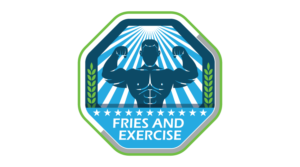It’s important to remember that the health of your pet depends on how well you take care of it. Your beloved buddy will stay active, maintain a healthy weight, and have a strong immune system if you feed them a balanced diet. We will examine the crucial elements of bulldog nutrition in this post, looking at the best food options and feeding practices to guarantee your pet’s overall health and enjoyment.
Getting to Know Bulldog Nutrition:
Bulldogs are a distinctive breed with particular dietary requirements. They are more likely to suffer from conditions like obesity, musculoskeletal troubles, and skin allergies. It is essential to adjust their diet to fully suit their needs in order to solve these difficulties.
Important Supplements for Bulldogs:
Proteins:
A bulldog’s diet must have a lot of protein because it helps with muscle maintenance and repair. Their meals should be built around premium animal proteins like chicken, steak, and fish.
Carbohydrates:
To maintain their energy levels, bulldogs require a moderate intake of carbohydrates. Choose complex carbohydrates that deliver energy gradually, such as whole grains and sweet potatoes.
Fats:
The health of your bulldog’s skin and coat depends on healthy fats. Omega-3 fatty acids, which are present in flaxseed and fish oil, can also support healthy joints and prevent inflammation.
Minerals and vitamins:
For optimal health, bulldogs need a balanced diet of vitamins and minerals. To do this, add a variety of fruits and vegetables to their diet.
Controlling portions and feeding times:
To avoid overeating and obesity in bulldogs, it’s essential to maintain a regular feeding schedule. It is advised that they split their daily serving into two or three meals. Based on your dog’s age, weight, and level of activity, consult your veterinarian to establish the right portion size.
Hydration:
All living things require water to survive, and bulldogs are no exception. Make sure your pet always has access to fresh, clean water. Digestion, circulation, and temperature regulation are all aided by enough water.
Taking Care of Common Health Issues
Obesity:
Due to their propensity to put on weight quickly, bulldogs must have their calorie intake closely monitored. Don’t overfeed them and stop from offering them calorie-dense goodies or table leftovers. To keep kids fit and healthy, encourage them to exercise frequently.
Joint Wellness:
Bulldogs are prone to joint problems because of their compact, muscular form. To improve joint health and mobility, add glucosamine and chondroitin supplements to their diet.
Care for Skin and Coat:
Bulldogs are prone to skin sensitivity and allergies. Choose hypoallergenic dog food and include omega-3 fatty acids to help maintain a lustrous coat and healthy skin. To avoid skin problems, regular grooming is also crucial.
Commercial dog food’s function:
Read the labels carefully when selecting commercial dog food for your bulldog. Look for items that mention animal proteins as the first or second ingredient, with minimal artificial additions or fillers. Because bulldogs could be allergic to corn, soy, and wheat, stay away from foods containing these substances.
The Value of Continual Veterinary Exams:
Regular veterinary appointments are just as vital for your bulldog’s health as providing the right nourishment. Regular examinations enable your veterinarian to evaluate your dog’s health, spot any possible problems, and alter your dog’s food as necessary.
Conclusion:
The term “bulletproof” refers to a person who has successfully completed a task. You can support your bulldog’s general health and happiness by offering a balanced diet, practicing portion management, and attending to breed-specific health issues. Always work with your vet to create a specialized diet for your bulldog that meets all of his or her needs. Your devoted pet will thrive and provide you delight for years to come with the correct care and attention.
